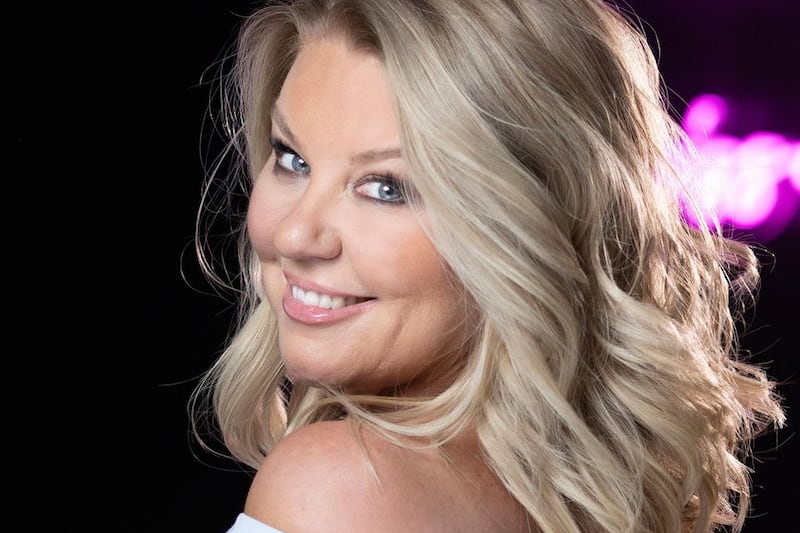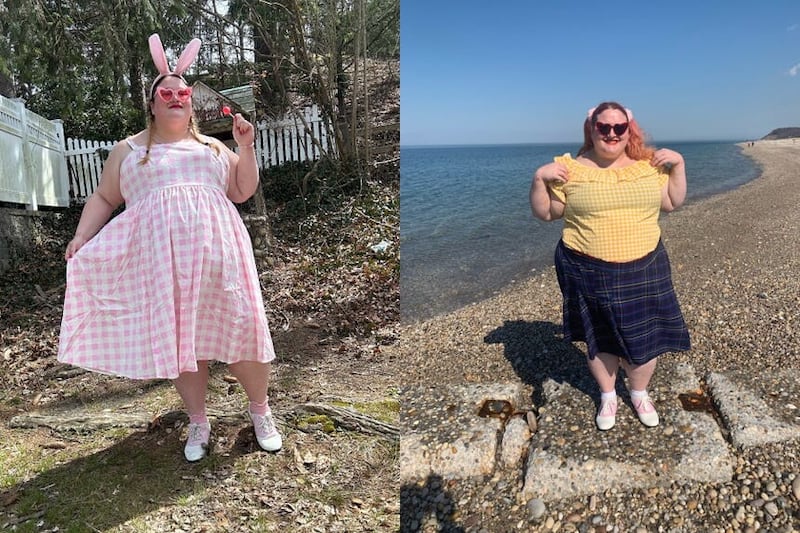TIS the season of love and on Friday people will be showing their affection for others by sending cards, flowers or chocolates with messages of love.
So what is love? How does it change over time? Does social media breed infidelity?
Love has been a favoured topic of philosophers, poets, writers, and scientists for generations. For author Laura Mucha, her interest in the subject stemmed from growing up with her mother and grandmother and having "no romantic relationship to observe".
"I didn’t understand how they worked and had endless questions. I started asking people wherever I went, and must have asked thousands of questions before eventually deciding to record my conversations when I met a 95-year-old Argentinian farmer who had been married for 75 years," says the psychology and philosophy graduate.
Ten years later Mucha had interviewed hundreds of strangers, aged eight to 95, about love across more than 40 countries on every continent. She then condensed these interviews, together with scientific and psychological research into her book, Love Factually: The Science of Who, How and Why We Love.
Whether we're in or out of a relationship, seeking romance, or happily single, Mucha argues in favour of re-evaluating the way that we understand love and romance, in order to improve our own relationships and emotional wellbeing.
She goes as far as thanking her book for her own relationship happiness.
"I’m now married – to someone I’d previously broken up with – and I don’t think we would be together if I hadn’t written the book," she says.
"It’s completely revolutionised the way I understand relationships. I have learnt more about my own negative patterns (I learnt that when I kept finding reasons to break up with people, it was more to do with me than them). I also learnt that I had impossible expectations of love. I’d like to think I’m a better partner and mother because of it."
While love is a seemingly universal language, there are many cultural differences in people's attitudes towards it. Mucha was surprised by how many societies around the world are non-monogamous – 46 per cent of countries allow marriage to more than one person, and in a large US study, 21 per cent of people admitted trying non-monogamy.
She was also pleasantly surprised by the recurring consistency in the need for kindness in a partner. "One lady who had been in a relationship for 17 years said her girlfriend had been kinder to their cat than she was to her.
"But in the International Mate Selection Project, 10,047 people across six continents ranked kindness and understanding as the most important thing in a romantic partner. If that doesn’t give you faith in humanity, I don’t know what will."
Although many relationships have been born through social media and dating apps, Mucha warns that "social media makes it easier to have unrealistic expectations of relationships."
The consequences of these expectations include being less committed, less invested and less satisfied in their relationship and looking elsewhere for new relationships, but Mucha recalls the wise comment from Noel, an Irishman in his 80s, who said "the grass might be greener, but what’s it like in winter?"
There are many myths surrounding love – the biggest one Mucha discovered was the idea of soul mates, with 88 per cent of 20-to-29-year-old single people in a US study thinking that somewhere out there was a ‘soul mate’ waiting for them.
"I think it’s a really dangerous way of looking at love – it makes it all about finding the right object, instead of reflecting on whether you could work harder at the skill of loving."
So, is there a scientific equation for a successful long-term relationship?
"No. But I do think that science and philosophy can give us some insights into what is helpful. I believe that the sort of love that makes long-term relationships last is a skill that requires knowledge, effort and learning – and philosophers like Nietzsche, Aristotle and Montaigne agree. How we develop that skill will depend on our own unique set of defence mechanisms (our suffocating need for closeness or our denial of unresolved trauma or loss), and how best we can manage them.
"No matter what our defences, there are ways of thinking and being that can only help with the skill of loving – such as cultivating compassion, commitment, forgiveness, humility, trust, self-awareness, respect, willpower, thankfulness, courage and kindness."
Many people, especially at the start of a relationship, are physically attracted to their partner, but can lust develop into love?
"One of my favourite explanations of the difference between lust and love – at least the sort of love that makes relationships last – came from Terri. I met her in Denver airport in the US where she was sitting huddled up in a doorway, waiting for a flight home to Phoenix, Arizona.
"She said: ‘I think lust is like a firework and love is more like a slow burn, it’s a campfire burn, you just have to add tinder to it, you have to take care of it and look after it, otherwise it goes out. But lust is definitely like BANG, BOOM and then once you get it out of your system that’s it, it’s over. But lust can lead to love, it can.’
"I think lust is a heady, intoxicating, obsessive and powerful drive aimed at getting us to reproduce. The sort of love that makes long-term relationships last is much calmer – there can still be an attraction there, but it’s less obsessive and dominating," adds Mucha.
Philosophers agree that the difference between lust and love is not something we can know at the time, so Mucha advises "it’s a good idea to wait until the lust wears off before making any big decisions" in your relationship.
So, whether we're trying to woo a new partner or have been married for 20 years, how important is St Valentine’s Day when it comes to keeping love alive?
"The Argentinian farmer I interviewed at the very start of the project told me love is about cultivating relationships as you would your crops. It's about the little things. Relationships aren't made up of gigantic gestures on birthdays, anniversaries or St Valentine’s Days, they're made up of tiny little moments. Those moments are really easy to overlook when you have a lot on and you're working very hard, but it is those moments that are fundamental to the wellbeing of a relationship," says Mucha.
:: Love Factually – The Science of Who, How and Why We Love discussion with Laura Mucha takes place in Belfast's Black Box on February 20 as part of The Northern Ireland Science Festival. For tickets and full programme visit Nisciencefestival.com.








